
The 2016 Zika epidemic made microcephaly a common term, but a new investigation indicates that congenital cytomegalovirus, which is much less studied, could be an even bigger cause of the birth defect.
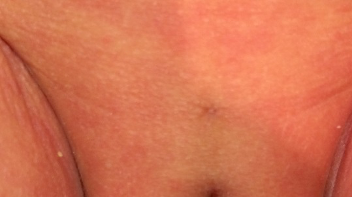

The 2016 Zika epidemic made microcephaly a common term, but a new investigation indicates that congenital cytomegalovirus, which is much less studied, could be an even bigger cause of the birth defect.

A research team in Australia has tied early exposure dust mite allergens through breast milk to later development of food allergies.

An updated clinical report from AAP reviews whether breastfeeding can prevent certain allergies, and how early peanut feeding can help prevent a peanut allergy.
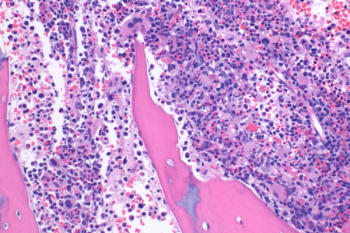
A previously healthy 5-week-old former term newborn male presented to the emergency department with the chief complaint of fever ranging from 101-104°F for 2 days. He also had been fussy and not been eating well. The infant remained febrile despite his mother’s administration of Infant Tylenol every 4 hours at home. His mother denied any cough, rhinorrhea, bleeding or bruising, diarrhea, vomiting, and reported stool and urine had been normal. What's the diagnosis?
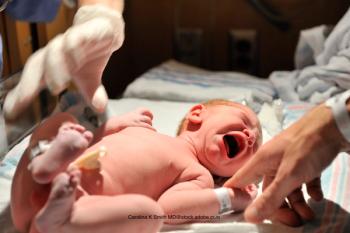
Gestational age is a major factor in neonatal death. A study examines if the effect of both gestational age and A new study shows that Apgar scores are able to forecast preterm infant mortality on on the risk of death.
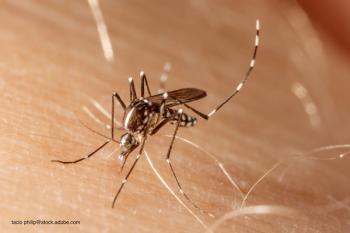
Parents of newborns who had been exposed to Zika virus in utero may have breathed a sigh of relief when their child was born with normocephaly. An investigation finds that adverse outcomes occurred even in children with normal head size.
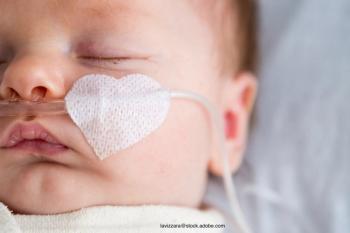
Standard care for home oxygen therapy to treat preterm infants uses clinic visits to determine when the child can be weaned. A report considers whether assessing recorded home oximetry data could change this.
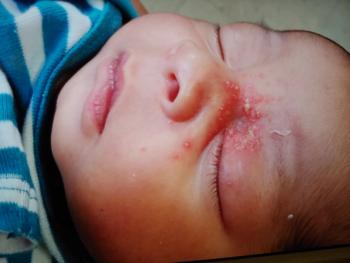
A healthy 11-day-old male infant is brought to the pediatric clinic for evaluation of rash. The rash started with a 2-mm papule on the left medial epicanthal fold 4 days before the clinic visit. A day before coming to the clinic, the rash had spread to the upper left eyelid and the nasal bridge. What's the diagnosis?

The jury has been out on whether long-term outcomes have improved for children with heterotaxy syndrome. A new investigation offers some answers.
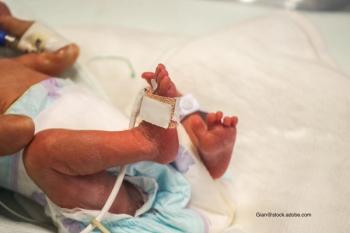
How are neonatal intensive care units (NICUs) being utilized in the Kaiser Permanente Southern California health care system? A new report investigates.

A 7-month-old male with severe hemophilia A (less than 1% factor VIII [FVIII] activity) presented to his pediatrician with fussiness and inability to sleep for 3 days. He had received his influenza vaccine 3 days earlier. What's the diagnosis?

Climate change has been linked to several adverse health outcomes. A review examines its impact on pregnancy outcomes like preterm birth and low birth weight.

Persistent patent ductus arteriosus is tied to increased mortality and many respiratory mortalities. A report compares treatment with ibuprofen versus no intervention.

An incident of sudden unexpected death in infancy (SUDI) is a tragedy. More than one incident in a family raises questions. A report defines the rate of recurrent SUDI and the causes of death in those cases.
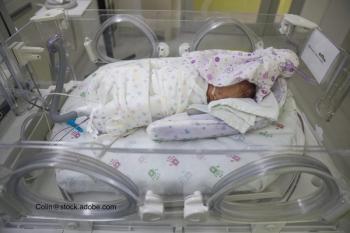
A simplified assessment could determine the need for medications to treat opioid withdrawal in neonates more quickly.
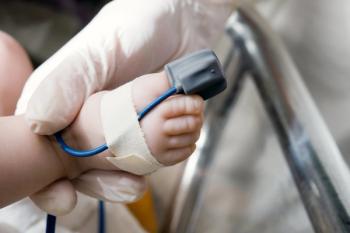
Cytomegalovirus is common throughout childhood, but the virus can cause a host of complications for very low-birth-weight (VLBW) infants.

Using antibiotics for extended periods in preterm infants can have long-term damaging effects to their gut microbiota, according to a recent study.
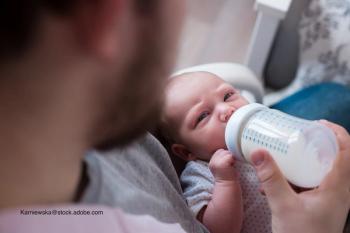
What to do when the baby cries; how to get the diaper on just right; or bathing baby may seem like the top concerns of new fathers, but experts say confidence and support are the real deficits for fathers-to-be.

A quiet, calm environment goes a long way toward improving the health of the most vulnerable patients.

The youngest, most susceptible infants often miss out on the benefits of breast milk, according to the first report to investigate breast milk feeding rates by gestational age.

Preterm infants may face an increased risk for infections that are vaccine-preventable along with associated complications. A recent study indicates that preterm infants may also be at risk of not being vaccinated in a timely manner.

Screening for critical congenital heart defects (CCHD) is now standard across the country, but the Centers for Disease Control and Prevention is calling for continued improvement on how data is collected and shared from the screenings.

Abnormalities of the limbs at birth can be devastating for the parents of a newborn. However, the primary care pediatrician, a rehabilitation team, and the family can help the child develop normal functioning and be independent.
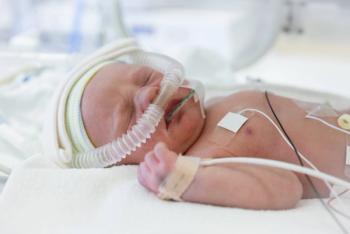
A review of oxygen resuscitation in preterm infants at birth reveals that high oxygen concentrations may not be as toxic as previously thought, but also failed to identify an ideal FiO2.

By the time most of us become parents, we have been pediatricians for a while and do not find parenting all that scary. To get the right dose of empathy, think back to when we first started handling babies-in medical school. Here are some things I tell new parents.